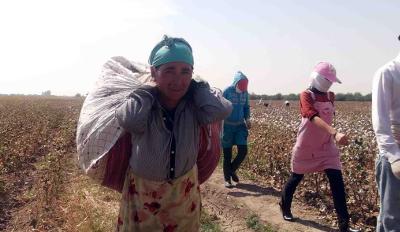
This week, more than 200 labor rights advocates from unions, companies, churches and non-governmental organizations are gathering in Washington, D.C. to honor Uzbek human rights defenders who have been documenting the Government of Uzbekistan’s ongoing use of forced labor in its annual cotton harvest. Unfortunately, only one of the invited honorees was able to attend due to increasing attacks from government officials. These brave activists take incredible personal risks to ensure evidence of state-sponsored forced labor is publicly available to the global governments and institutions that could influence the situation. But in a sad irony, those same governments and institutions speak in defense of persecuted activists only in private, if at all.
Neither violent repression of civil society actors nor international complacency is new in Uzbekistan. This same week in 2005, armed security forces under the leadership of the Uzbek Government gunned down at least 700 citizens and subsequently tortured dozens more in what became known as the Andijan massacre. After Andijan, the United States and European Union imposed sanctions on the Uzbek regime for its brutality, yet quickly softened enforcement and then let the sanctions expire. The brutality of the Uzbek regime has not softened, however, and it is time that the international community took forceful action in support of those struggling to promote a culture of freedom and against a regime that continues to coerce citizens to labor in agricultural fields against their will for the benefit of a wealthy elite.
Uzbek President Islam Karimov, who has been in power since Uzbekistan’s emergence as an independent country after the collapse of the Soviet Union in 1991, oversees a forced-labor system of cotton production in which officials force more than a million Uzbek citizens to work in cotton fields under threat of penalty. This system is only possible through the state’s use of fear, established with both violence and regular coercion. Average Uzbek citizens are faced each fall with the choice between weeks of picking cotton, paying bribes to officials, or facing penalties imposed by the state, including job loss, expulsion from school, denial of social benefits and punitive tax investigations. Officials routinely try to silence those who seek to document this system, but 2015 saw a new level of official repression against those who openly document this egregious violation of human rights:
- Dmitri Tikhonov was forced to flee Uzbekistan after multiple arrests and his house was set on fire. The arsonists also stole archives of Dmitri’s work. No one was ever charged. Instead, officials fabricated serious charges against him, forcing Dmitri to seek asylum in Europe.
- Uktam Pardaev, head of the Jizzak Branch of the Independent Human Rights Organization of Uzbekistan, was arrested on falsified charges, detained for eight weeks, and beaten. Global pressure led the government to reduce a 6-year prison sentence to probation. Uktam cannot leave his hometown or his home after 10 pm and remains under constant surveillance. A global campaign is working to free Uktam.
- Elena Urlaeva was detained five times while documenting the 2015 cotton harvest. Twice she was subjected to brutal body cavity searches while in custody. Officials also subjected her to other humiliations and videotaped the abuse. She was denied an exit visa.
The second attack against Ms. Urlaeva came only a week after the Uzbek government met with the International Labour Organization (ILO), World Bank and several diplomatic missions in Tashkent to discuss the government’s systematic use of forced labor to produce cotton. Elena, Uktam and Dmitri all met with the ILO, World Bank, U.S. and European Union (EU) diplomatic missions in Uzbekistan repeatedly throughout the 2015 cotton harvest. ILRF and our allies on the Cotton Campaign have repeatedly, though unsuccessfully, urged these international organizations, the EU and the U.S. government to speak out publicly in defense of these activists. In Uzbekistan, where freedom of association is not respected, these brave citizens are doing the work of independent trade unions. We remain deeply concerned that quiet diplomacy leaves Uzbek human rights defenders at risk of continued repression.
Urgent action to press the Uzbek government to respect civil society and end forced labor is vital. We call for principled engagement that holds the Uzbek government accountable for its crimes. We call on governments and international organizations to take a firm, public stance against the Uzbek Government’s mass use of forced labor and repression of civil society, and condition support to the Uzbek Government on concrete reform.


